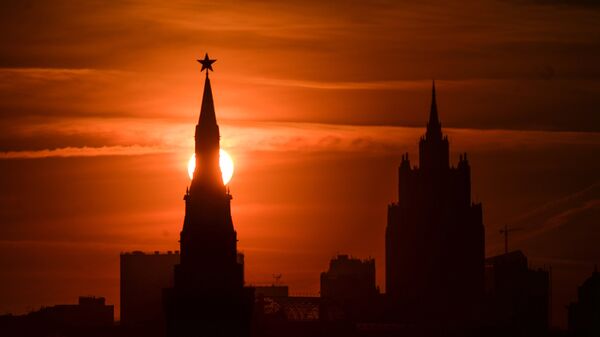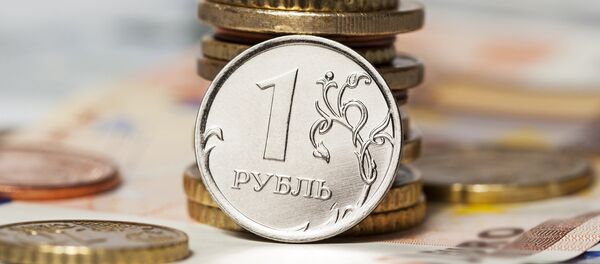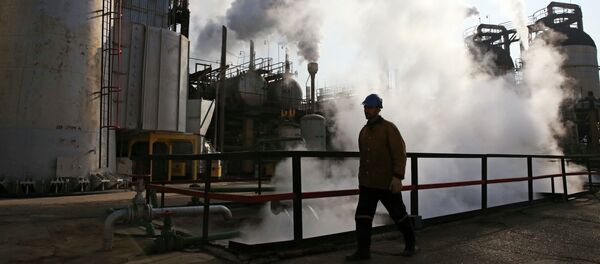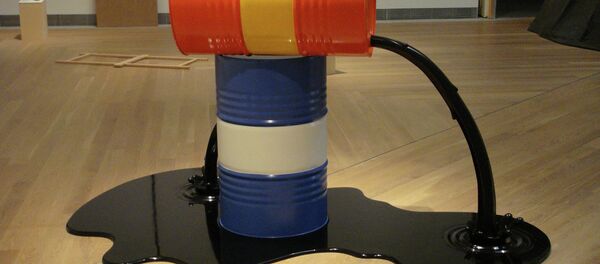Currently, Fitch’s credit risk rating for Russia is "BBB-" with negative outlook. S&P downgraded Russia to "BB+", also with negative outlook. That means the rating is unlikely to be reviewed in the near future.
Moody’s upgraded Russia to "Ba1" from negative to stable in early-December.
Russian officials have repeatedly stressed the ratings are politically biased. In July, the Russian Central Bank announced the creation of a new independent rating agency, later named the Analytic Credit Rating Agency (ACRA).
Most analysts agree that in 2016 Russia will see a moderate growth and a slowdown in inflation. With oil prices remaining low, the Russian economy will have to keep on adapting to new environments.
According to the Ministry of Economic Development, in 2016 GDP is expected to grow by 0.7 percent and inflation is expected to be 6.4% by the end of the year while Urals crude is expected to be $50 a barrel and the ruble-dollar rate is expected to be 63.3.
Recently, the ministry improved its outlook for GDP decline in 2015, from —3.9 percent to —3.7 percent.
The economic situation has stabilized, Tatyana Lysenko, leading economist for Standard & Poor’s in Russia, said.
"Our outlook for 2016 is that GDP will grow by 0.3 percent. The basic scenario presumes a small increase in oil prices against the current price. However oil prices for Brent crude will remain at $55 per barrel in 2016," she told RIA Novosti.
In such conditions, the agency expects stabilization of the ruble exchange rate and slowdown in inflation, to six-seven percent, by the end of 2016.
Charles Seville, Senior Director at Fitch Ratings, also expects that the Russian economy would start restoring in 2016.
"Fitch expects the Russian economy to stabilize in 2016, with growth to be around 0.5 percent. In 2017, it will accelerate to 1.5 percent," he said.
The economic downturn in Russia is coming to an end, Ekaterina Trofimova, head of ACRA, said.
"Stagnation is possible in 2016 since no new stimulus has been created for growth. The economy may grow or decline a bit but the changes will not be significant," she said.
At the same time, experts underscore that low commodity prices, the economic downturn in China as well as geopolitical factors will be warning signs for investors.
Many emerging markets are currently in a difficult situation, Lysenko noted. They are being affected by several factors simultaneously, including China’s economic decline, low commodity prices and expectations for rising interest rates in the US.
"However, in the macroeconomic perspective, Russia still has some advantages for investors, including the ability to adapt to shock scenarios, persisting net surplus, and low sovereign debt," the analyst explained.
According to Trofimova, the devaluation of ruble makes Russian assets attractive for foreign investors, despite the economic downturn.
The ruble devaluation has boosted the competitive ability of Russian-produced goods, Lysenko said. Russian manufacturers now have a chance to increase both their domestic market shares and exports.
As for the possible revision of Russia’s rating, analysts explained that the agencies usually take into a count a wide range of factors, ranging from demographic statistics to broader macroeconomic indicators.
Trofimova said that currently the agencies rate the situation in the Russian economy rather stable.
"I believe that if the entire macroeconomic background is table there will be real preconditions for Russia’s rating to be upgraded by S&P and Fitch in 2016. This will be a result of growth, structural reforms and financial stability," she concluded.







